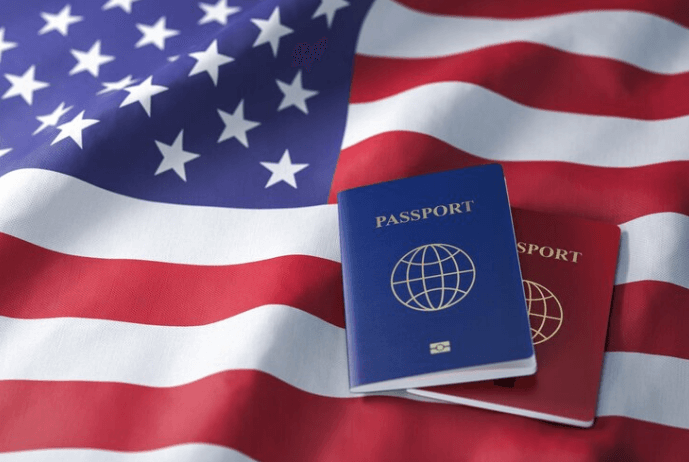The United Kingdom offers a range of family visas, each designed to facilitate the reunion of families and maintain family life in the UK. Understanding these visa processes is crucial for individuals looking to join or stay with their family members in the UK.
Overview of UK Family Visas
UK family visas encompass various categories, each targeting a specific familial relationship and circumstance. These visas allow individuals from outside the UK to join their family members who are either British citizens or have settled status in the UK. The process involves strict eligibility criteria and a thorough application process to ensure that only genuine relationship-based applications are approved.
Importance of Understanding the Visa Process
Navigating the UK family visa process can be complex and daunting. It involves understanding specific requirements, gathering the necessary documentation, and following detailed application procedures. Missteps in the process can lead to delays or denials, making it crucial for applicants to have a clear understanding of the requirements and processes. Expert advice or legal assistance can be invaluable in ensuring a successful application.
Eligibility and Types of UK Family Visas
Spouse or Partner Visa
The Spouse or Partner Visa is for individuals who wish to join their spouse or partner in the UK. This category is applicable to those whose partners are British citizens, settled persons, refugees, or under humanitarian protection. The relationship must be recognized as a marriage, durable relationship, or civil partnership.
Parent Visa
The Parent Visa is designed for parents of British citizens or those with settled status. It’s particularly aimed at parents whose children are under 18 years old, or were under 18 at the time of the first visa application.
Child Visa
This visa category is for children of a settled person in the UK. Applicants must be dependent children living in the UK with their parent, who is either applying jointly with the child for a UK visa or extending their stay.
Visa for Adults Needing Long-term Care
This visa is for adults who require long-term care from a relative who is a British citizen, settled person, refugee, or under humanitarian protection in the UK. The applicant must be suffering from a disability, medical condition, or be of old age.
Visa Based on Private Life
This category is for individuals who have lived in the UK for a significant period and whose personal circumstances make it difficult for them to leave. This visa allows them to remain in the UK permanently.
Other Special Categories
These include visas for widowed partners or separated spouses. These categories cater to specific situations where individuals have lost their partners or are no longer in a relationship but have compelling reasons to remain in the UK.
In summary, understanding the specific types of UK family visas, their eligibility criteria, and the application process is essential for anyone seeking to join family members in the UK. Each category addresses different familial situations, ensuring that the right applicants can legally reside with their loved ones in the UK.
The application process for UK family visas is intricate, requiring meticulous attention to detail and a thorough understanding of immigration laws. Here’s a step-by-step guide to navigate this process:
Initial Consultation and Assessment
The first step involves consulting with an immigration expert or legal advisor. This initial consultation is crucial to assess your unique situation, understand the specific visa category you’re applying for, and determine the best course of action. Professional advice at this stage helps in identifying potential issues and planning an effective application strategy.
Document Gathering
One of the most critical steps is collecting the necessary documents. The required documentation varies depending on the type of visa. Generally, it includes proof of relationship (like marriage certificates for spouse visas), financial stability evidence (such as bank statements or employment details), and evidence of adequate accommodation in the UK. Each document must be accurate, up-to-date, and comply with the UK immigration requirements.
Application Submission
After gathering all necessary documents, the next step is to submit the visa application. This process typically involves filling out detailed application forms and attaching the required documentation. Accuracy and completeness are paramount to avoid any potential delays or refusals. Applications are usually submitted online, but some may require in-person submission at a visa application center.
Common Documents Required
Commonly required documents for UK family visas include:
- A valid passport or travel document.
- Proof of your relationship with the family member in the UK.
- Evidence of meeting the financial requirement.
- Proof of adequate accommodation in the UK.
It’s important to ensure that these documents are valid and correctly reflect your current circumstances.
Expert Advice and Legal Representation
Given the complexity of the UK immigration system, seeking expert advice and, if necessary, legal representation, is highly recommended. Immigration lawyers or advisors can provide valuable insights into the application process, help gather and organize documents, and ensure that your application adheres to all the legal requirements.
Dealing with Challenges: Refusals and Appeals
Understanding Visa Refusals
Visa refusals can occur for various reasons, such as failure to meet the eligibility criteria, insufficient documentation, or issues with the application’s credibility. It’s essential to understand the specific reasons for refusal, as detailed in the refusal letter from UK Visas and Immigration (UKVI).
The Appeals Process
If your visa application is refused, you may have the right to appeal the decision. The appeals process involves presenting your case to an immigration tribunal, where you can contest the refusal. This process can be complex and may require detailed legal arguments and additional evidence to support your case. It’s advisable to seek professional legal advice to navigate this process effectively.
Continuous Support and Legal Representation
Ongoing support and legal representation can be crucial, especially when dealing with refusals and appeals. Immigration experts can guide you through the appeals process, represent you at tribunals, and provide continuous support for any further immigration queries or challenges.
The process of applying for a UK family visa is comprehensive and requires detailed preparation. From initial consultation to handling potential challenges like refusals and appeals, each step must be approached with thoroughness and precision. Consulting with immigration experts or legal advisors is invaluable in ensuring a smooth and successful application process.
Pathways to Long-term Settlement
For many who have successfully navigated the UK family visa process, the journey doesn’t end with temporary residency. The long-term goal often involves obtaining Indefinite Leave to Remain (ILR) and, subsequently, British citizenship.
Indefinite Leave to Remain (ILR)
ILR grants a person the right to live and work in the UK without any time limit. To be eligible for ILR, individuals typically need to have legally lived in the UK for a certain period, usually five years, under a qualifying visa category. The requirements for ILR include:
- Continuous Residence: Applicants must demonstrate continuous residence in the UK during the qualifying period.
- Knowledge of Language and Life in the UK: Applicants are required to pass the ‘Life in the UK’ test and prove their knowledge of the English language.
- Financial Stability: Showing stable and sufficient income without recourse to public funds is necessary.
- Good Character: Applicants should not have a serious criminal record and must adhere to UK laws during their stay.
Upon obtaining ILR, individuals can live permanently in the UK, and it is a critical step towards British citizenship.
Path to British Citizenship
Following a period of holding ILR, usually one year, individuals can apply for British citizenship. This process involves:
- Eligibility Criteria: Besides holding ILR, applicants must meet residency requirements, including not spending more than 450 days outside the UK during the five-year period and not more than 90 days in the last 12 months.
- Citizenship Application: Submitting a detailed application with required documents and fees.
- Citizenship Test and Interview: Applicants must pass the ‘Life in the UK’ test and possibly attend an interview to demonstrate their intention to continue living in the UK.
- Ceremony of Citizenship: Upon approval, applicants are invited to a citizenship ceremony, marking their official status as British citizens.
Obtaining British citizenship is the culmination of a long journey, offering the full benefits of being a UK national, including the right to vote, access to the NHS, and the ability to apply for a British passport.
Conclusion
The path to long-term settlement in the UK through family visas is a journey of commitment and adherence to legal procedures. Indefinite Leave to Remain and British citizenship are milestones that signify a deep integration into UK society and a commitment to its values and laws. While the process can be lengthy and complex, the rewards of permanently settling in the UK are significant.
Final Thoughts and Advice
- Planning and Patience: The journey towards long-term settlement in the UK requires careful planning and patience. Understanding each step’s requirements and timeframes is crucial.
- Compliance with Immigration Rules: Strict adherence to immigration rules and regulations is vital throughout your stay in the UK.
- Continuous Updating of Knowledge: Immigration laws and policies can change. Regularly update your knowledge and stay informed about any changes that might affect your status.
- Seek Professional Advice: Given the complexity of immigration laws, seeking professional advice is beneficial, especially for ILR and citizenship applications.
- Integration into UK Society: Embrace the opportunity to integrate into UK society. Engaging with the community and understanding British values and customs will enrich your experience and support your long-term residency aspirations.
Embarking on the path to long-term settlement in the UK is a significant decision that opens doors to new opportunities and a stable future. With careful planning, adherence to legal requirements, and a commitment to integrating into UK society, this goal is well within reach for those who embark on this journey.







Leave a Reply